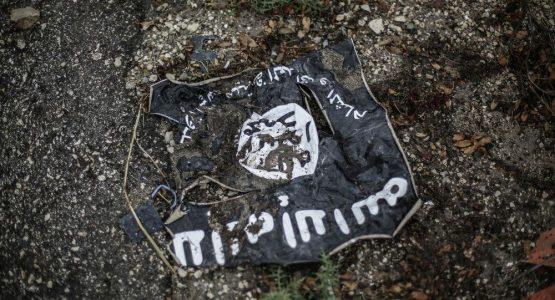
Trinidadians who join ISIS think that the ‘caliphate’ is a good thing
Trinidad and Tobago has been revealed to have one of the world’s highest Daesh volunteer rates, according to a report by The Guardian. Over a hundred of the Caribbean nation’s citizens have left the country to join the armed religious fundamentalist group, including women and children.
Radio Sputnik discussed reasons why Trinidad and Tobago nationals join Daesh with Dr. Sanjay Badri-Maharaj, an independent defense analyst based in Trinidad, and also a former Visiting Fellow at the Indian Institute for Defense Studies and Analyses as well as a consultant to the Trinidad and Tobago Ministry of National Security.
Radio Sputnik: Of all countries, why have nationals of Trinidad and Tobago — that is so far away from the Middle East — become interested in joining Daesh?
Dr. Sanjay Badri-Maharaj: There are two aspects. One are pre-existing radical Islamic groups. So there was a channel for people to spread a message. The second aspect is something that is less understood: that the normal route is often through London, to Europe, then to Turkey and then to Syria. Trinidadians don’t need visas to go to London, any Schengen countries or Turkey. So, there’s no vetting at that stage. Once the ticket is bought and they have a valid passport, they’re through.
Q: What can you say about the current threat of terrorism and recruitment, and what is the government doing about it?
A: There is a section of youth in Trinidad, in the inner cities and urban areas. These make up the majority of those who have gone across to ISIS, but they are not exclusive by any means. You don’t see a level of dire poverty or extreme marginalization; but some of these people are actually in a country where levels of education standards are reasonably high. Some of them find it difficult to beat the odds because they are not skilled. Others have formed these traveling street gangs and organized crime. And the police often act in a manner that can be a little heavy-handed. And some of them feel alienated and then [get the] idea that they need to fight for their rights, of course.
There is an aspect that cannot be understated: the feeling amongst those who have become radicalized that this Islamic caliphate as preached by ISIS is in fact a good thing. That this is not simply a way out of poverty or what have you. No, poverty is quite important, because many of these people leaving home are actually receiving money to fight for ISIS.
Trinidad does not have this destitute migrant population that feels alienated or anything of the sort. I can’t emphasize this enough: Trinidad Muslim population has been a part of the fabric of this country; they have reached the highest offices of the land without problems.
In respect to what the government is doing, that is a bit of a mess. The government is aware of its problems. It tries to keep track of them. The two intelligence agencies in Trinidad and Tobago attempt to keep track of the elements. They’ve not been particularly effective in doing so. In terms of countering radicalization they have reached out to the more moderate elements in the Muslim community, but the biggest problem here is that these elements are themselves are unable to penetrate that wall around radical groups; because the two groups are quite separated.
The other aspect that is a little bit worrying is that to avoid alienating Muslim groups, the new government is afraid to take really strong action. Is there a threat of terrorism there? I think the answer is possibly yes. It hasn’t happened yet since 1990, but it is there.
Source: Sputnik





